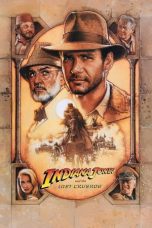- Source: Ambrose Jones
- Henry Jones (uskup)
- Jon Moxley
- Teori bencana Toba
- Indonesia
- The Pacific
- Roman Reigns
- Chance Perdomo
- Mission: Impossible II
- Plagiarisme
- Fosforus
- Ambrose Jones
- Emrys ap Iwan
- William Jones (bishop of Puerto Rico)
- Dean Jones (cricketer)
- William A. Jones
- Griffith Jones (priest)
- Oliver Jones (Irish MP)
- Curtly Ambrose
- Ambrose Olsen
- Ambrose Bierce
Indiana Jones and the Temple of Doom (1984)
Indiana Jones and the Kingdom of the Crystal Skull (2008)
Indiana Jones and the Dial of Destiny (2023)
Armour of God (1986)
Raiders of the Lost Ark (1981)
Pirates of the Caribbean: Dead Man’s Chest (2006)
No More Posts Available.
No more pages to load.
Ambrose Jones (died 15 December 1678) was a Welsh-Irish cleric who served as Anglican Bishop of Kildare 1667–1678. He was from a prominent family - his Oxford-educated father, Lewis Jones, served as Anglican Bishop of Killaloe, his oldest brother Henry Jones was Anglican Bishop of Clogher and later Meath, and his brothers Theophilus Jones, Oliver Jones, and Michael Jones were soldiers and politicians. His mother was Mabel Ussher, sister of James Ussher, Archbishop of Armagh.
Ambrose Jones was educated at Trinity College, Dublin, earning a Doctorate in divinity, and took up his father's post as prebend of Emly in February 1637/8. He later held church office as treasurer (1639) and precentor (1641) of Limerick, archdeacon of Meath (Feb. 1660/1), rector of Castletown, Meath (1665) and finally bishop of Kildare and prebend of Maynooth in 1667. As bishop, he made efforts to recover property that had been alienated from the see.
In May - June 1642 he was besieged with his father, Bishop Lewis Jones, and others in King John's Castle, Limerick by Irish forces; he was one of the representatives who negotiated the castle's surrender, and a surviving diary of the siege has been attributed to him.
References
This article incorporates text from a publication now in the public domain: "Jones, Lewis". Dictionary of National Biography. London: Smith, Elder & Co. 1885–1900.










